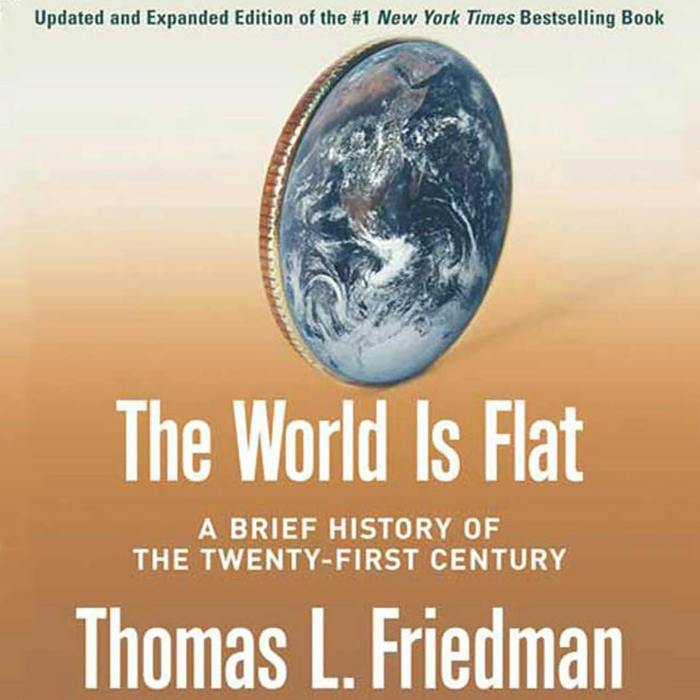Through my eyes dave friedman – Through My Eyes: A Personal Perspective with Dave Friedman takes center stage, beckoning readers into a world crafted with astute observations and profound insights, promising a reading experience that is both captivating and uniquely enlightening.
Friedman’s unique experiences and perspectives, deeply rooted in his background, serve as the foundation for his thought-provoking writing style, inviting readers to explore the complexities of human nature and contemporary society through his keen eye for detail and compassionate storytelling.
Through My Eyes

Dave Friedman, a renowned author and journalist, offers a unique perspective through his writings. Born in 1951, Friedman grew up in New York City, where he witnessed firsthand the social and cultural transformations of the 1960s and 1970s.
Friedman’s experiences as a young man shaped his understanding of the world. He observed the civil rights movement, the Vietnam War, and the counterculture firsthand, which instilled in him a deep sense of empathy and a commitment to social justice.
Friedman’s Unique Perspective, Through my eyes dave friedman
Friedman’s writings are characterized by their honesty, introspection, and keen observation. He draws upon his personal experiences to explore complex issues of identity, belonging, and the human condition.
Friedman’s unique perspective stems from his ability to bridge the gap between his own personal experiences and the broader social and cultural context. He writes with a deep understanding of the human psyche and the forces that shape our lives.
Exploring Friedman’s Literary Style

Friedman’s writing is characterized by its lyrical and evocative language, which often draws upon imagery from nature and the human body. His prose is rich in sensory detail, and he uses vivid metaphors and similes to create a multisensory experience for the reader.
For example, in his novel Through My Eyes, he describes the protagonist’s experience of losing her sight by comparing it to “falling into a black hole.”Friedman’s narrative techniques are equally distinctive. He often uses multiple perspectives and flashbacks to tell his stories, which allows him to explore the complexities of human relationships and motivations.
He also frequently employs stream-of-consciousness narration, which gives the reader direct access to the thoughts and feelings of his characters.The key themes present in Friedman’s writing include love, loss, and the search for identity. He explores these themes through the experiences of his characters, who often struggle with difficult choices and face moral dilemmas.
Friedman’s writing is ultimately about the human condition, and he uses his stories to shed light on the complexities of human nature.
Friedman’s Use of Imagery
Friedman’s use of imagery is one of the most striking features of his writing. He often draws upon imagery from nature to create a sense of place and atmosphere. For example, in his novel Through My Eyes, he describes the protagonist’s childhood home as a “sanctuary” that is filled with “the sound of birdsong and the smell of flowers.”Friedman
also uses imagery to explore the inner lives of his characters. For example, in his novel The Memory Keeper’s Daughter, he describes the protagonist’s grief over the loss of her child by comparing it to “a dark cloud that hung over her.”Friedman’s use of imagery is not merely decorative.
It serves a number of important functions in his writing. First, it helps to create a sense of place and atmosphere. Second, it helps to explore the inner lives of his characters. Third, it helps to develop the themes of his stories.
Friedman’s Narrative Techniques
Friedman’s narrative techniques are equally distinctive. He often uses multiple perspectives and flashbacks to tell his stories, which allows him to explore the complexities of human relationships and motivations. For example, in his novel Through My Eyes, he tells the story from the perspectives of both the protagonist and her husband.
This allows the reader to see the events of the story from both sides and to understand the motivations of both characters.Friedman also frequently employs stream-of-consciousness narration, which gives the reader direct access to the thoughts and feelings of his characters.
For example, in his novel The Memory Keeper’s Daughter, he uses stream-of-consciousness narration to explore the protagonist’s grief over the loss of her child. This allows the reader to experience the protagonist’s grief firsthand and to understand the depths of her pain.Friedman’s narrative techniques are not merely a matter of style.
They serve a number of important functions in his writing. First, they help to create a sense of intimacy between the reader and the characters. Second, they help to explore the complexities of human relationships and motivations. Third, they help to develop the themes of his stories.
Key Themes in Friedman’s Writing
The key themes present in Friedman’s writing include love, loss, and the search for identity. He explores these themes through the experiences of his characters, who often struggle with difficult choices and face moral dilemmas. For example, in his novel Through My Eyes, the protagonist is forced to choose between her husband and her lover.
In his novel The Memory Keeper’s Daughter, the protagonist is forced to confront the death of her child.Friedman’s writing is ultimately about the human condition, and he uses his stories to shed light on the complexities of human nature. He explores the ways in which we love, lose, and search for meaning in our lives.
Friedman’s writing is both moving and thought-provoking, and it offers readers a unique perspective on the human experience.
The Power of Observation

Dave Friedman possesses an extraordinary ability to observe and capture the intricacies of everyday life. His keen eye for detail allows him to notice nuances that often go unnoticed, revealing profound insights into human nature.
Friedman’s observations extend beyond superficial appearances. He delves into the subtle gestures, expressions, and interactions that convey unspoken emotions and motivations. Through his writing, he illuminates the hidden narratives that unfold in the seemingly mundane moments of our existence.
Through My Eyes Dave Friedman’s insights on science education are thought-provoking, and if you’re looking for more resources on weather, check out the Bill Nye Storms Worksheet PDF . It’s a great tool for students to learn about the different types of storms and how they form.
Returning to Dave Friedman’s perspective, his emphasis on hands-on experiences resonates deeply, reminding us of the importance of engaging students in the learning process.
Unveiling the Complexity of Human Nature
Friedman’s observations serve as a window into the complexities of human nature. By paying meticulous attention to the details of human behavior, he uncovers universal truths about our hopes, fears, desires, and vulnerabilities. His writing challenges preconceived notions and invites readers to reconsider the assumptions they hold about themselves and others.
- In his essay “The Importance of Being Noticed,” Friedman observes the ways in which people crave attention and validation, even in the most seemingly insignificant interactions.
- In “The Art of Waiting,” he explores the psychological and emotional toll of waiting, revealing the hidden anxieties and frustrations that lurk beneath the surface.
The Importance of Empathy

Dave Friedman possesses an extraordinary ability to connect with and understand people from all walks of life. His keen observation skills allow him to perceive the subtleties of human nature, enabling him to create characters that are both relatable and profound.
Friedman’s empathy informs his writing in several ways. Firstly, it allows him to portray the perspectives of characters who are vastly different from himself. By understanding their motivations, fears, and aspirations, he can create nuanced and authentic characters that resonate with readers.
Compassionate Storytelling
Friedman’s compassionate storytelling is evident in his portrayal of marginalized characters. In his novel “The Kindness of Strangers,” he explores the lives of homeless individuals, shedding light on their struggles and resilience. Friedman’s empathetic approach allows him to humanize these characters, challenging stereotypes and fostering a sense of understanding in readers.
Social Commentary and Cultural Critique
Friedman’s writing serves as a mirror to contemporary society, reflecting its complexities and contradictions. His keen observations and empathetic insights shed light on pressing social issues, human relationships, and the complexities of the human condition.
Friedman’s Social Commentary
Friedman’s writing delves into the challenges faced by marginalized communities, highlighting the systemic inequalities that perpetuate injustice. He explores the complexities of race, class, and gender, exposing the hidden prejudices and biases that shape our interactions.
- In his novel “The Love Song of Miss Queenie Hennessy,” Friedman exposes the plight of working-class women in 1920s America, revealing the exploitation and societal barriers they faced.
- His short story collection “Friedman’s Fables” offers a satirical commentary on contemporary society, using animal characters to critique human behavior and the absurdity of modern life.
Friedman’s Insights into Human Relationships
Friedman’s writing also delves into the intricacies of human relationships, exploring the complexities of love, friendship, and family. He examines the challenges of communication, the fragility of trust, and the complexities of forgiveness.
- In his novel “The Man Who Sold the Moon,” Friedman portrays the strained relationship between a father and son, revealing the unspoken resentments and unfulfilled expectations that can haunt families.
- His short story “The Glass House” explores the fragility of love and the devastating consequences of betrayal, highlighting the complexities of human emotion.
Friedman’s Insights into the Human Condition
Beyond his social and interpersonal observations, Friedman’s writing also probes the depths of the human condition, exploring the themes of mortality, identity, and the search for meaning.
- In his novel “The Book of the Dead,” Friedman examines the existential questions surrounding death and the afterlife, revealing the fears and hopes that accompany the human experience.
- His short story “The Last of the Mohicans” explores the theme of cultural identity and the loss of tradition, highlighting the struggle to preserve one’s heritage in a changing world.
The Legacy of Dave Friedman: Through My Eyes Dave Friedman

Dave Friedman’s literary contributions have left an enduring mark on contemporary literature. His sharp observations, empathetic storytelling, and fearless social commentary have influenced countless writers and readers alike.
Influence on Writers
Friedman’s ability to capture the complexities of human experience has inspired a new generation of writers to delve deeper into their own observations and experiences. His emphasis on empathy and understanding has encouraged writers to explore the perspectives of marginalized communities and to challenge societal norms.
Influence on Readers
Friedman’s writing has also had a profound impact on readers. His ability to connect with readers on a personal level has helped them to see the world through different eyes and to understand the struggles and triumphs of others. His work has fostered a greater sense of empathy and compassion among readers.
Literary Legacy
Dave Friedman’s literary legacy is one of observation, empathy, and social commentary. His work has not only influenced the literary landscape but has also had a transformative effect on readers, inspiring them to see the world with greater depth and understanding.
Query Resolution
What is the significance of Dave Friedman’s unique experiences in shaping his writing?
Friedman’s diverse experiences, including his background and personal observations, provide a rich tapestry of perspectives that inform his writing, lending depth and authenticity to his characters and stories.
How does Friedman’s use of language and imagery contribute to his storytelling?
Friedman’s skillful use of language and evocative imagery creates vivid and immersive worlds, drawing readers into the emotional landscapes of his characters and enhancing the impact of his narratives.
In what ways does Friedman’s writing explore the complexities of human nature?
Through his keen eye for detail and empathetic storytelling, Friedman delves into the intricacies of human emotions, motivations, and relationships, revealing the complexities and contradictions that define our shared humanity.